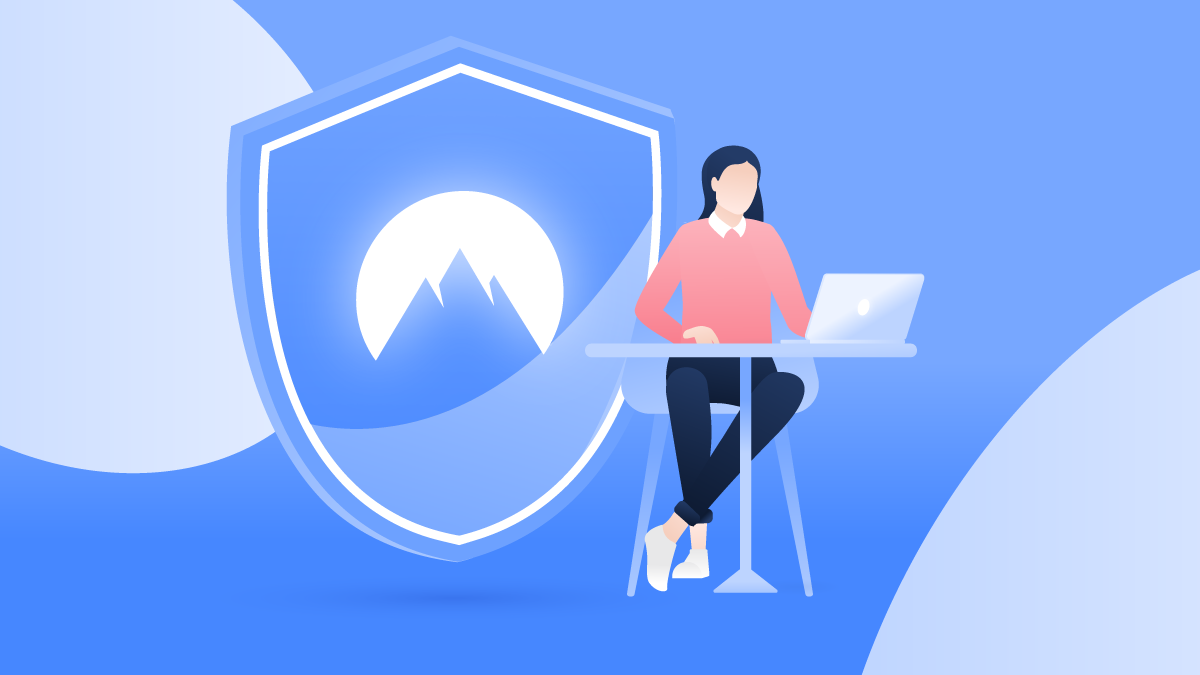12 common VPN myths busted
A virtual private network (VPN) is a popular tool for online privacy, but many debates and myths surround VPNs and how they work. A VPN’s functions and benefits get underestimated, overestimated, or plainly misunderstood, creating various VPN misconceptions. Let’s reveal the truth about VPNs as we debunk 12 common VPN myths.
12 VPN myths debunked
- VPNs are illegal
- Free VPNs are just as good as paid VPNs
- A VPN will make my internet too slow to use
- There’s no such thing as an easy-to-use VPN
- I don’t need a VPN because I have nothing to hide
- Only criminals and hackers use VPNs
- VPNs are only for computers
- A VPN will keep me 100% anonymous no matter what I do
- A VPN will keep me secure from hackers and malware
- A VPN is not necessary at home
- Using a VPN will stop my ISP from seeing I am using too much data
- All VPNs are the same
12 VPN myths debunked
Among misinformation surrounding virtual private networks, the following 12 VPN misconceptions take the cake.
Myth 1. VPNs are illegal
The legal status of VPNs depends on the particular country. VPNs are indeed illegal in countries with heavy censorship and online surveillance. Since a reliable VPN allows users to avoid censorship and surveillance, government agencies in some countries forbid using VPNs altogether.
However, the assumption that VPNs are illegal because only hackers and criminals use VPNs is far from the truth. While conducting illicit activities online is unlawful whether you use a VPN or not, VPNs have many legitimate uses. Millions of people use VPNs to browse the internet safely and privately, research sensitive topics, and protect their online data while traveling.
Further reading: Are VPNs legal?
Myth 2. Free VPNs are just as good as paid VPNs
When a for-profit company provides you with a free service, it usually uses you to make money. You are the product, not the customer.
Remember this rule when you weigh the benefits of a free VPN against a paid one. Free VPNs can log traffic, annoy you with constant ads, or even sell your bandwidth.
Free VPNs also offer fewer features and slower speeds. Since they employ fewer people, free VPNs can’t always keep up with the latest cybersecurity trends. Meanwhile, premium VPNs answer to customers, not advertisers or other third parties, so they are more motivated to deliver a product that works.
Further reading: Are free apps safe to use?
Myth 3. A VPN will make my internet too slow to use
A VPN can indeed slow down your internet speed. When you’re on a VPN, all your internet traffic is encrypted and travels through a VPN server before heading to its destination. Naturally, this process will have an impact on your internet speed. But if you use a quality premium VPN, the difference in speed should be too small to notice.
The severity of the slowdown depends on many factors, including your VPN settings, speed, and the country you choose to connect to. If you proxy your traffic through a country on the other side of the world, your latency can take a hit. But if you select a VPN server closer to your location, the slowdown shouldn’t be noticeable.
In a few scenarios, you may experience a speedup. ISPs have to see your traffic to throttle bandwidth based on your activity, but they can’t see your traffic when a VPN encrypts it. You get higher internet speed if a VPN prevents ISPs from throttling your bandwidth based on traffic type.
Further reading: Does a VPN decrease internet speed?
Myth 4. There’s no such thing as an easy-to-use VPN
In the past, only tech-savvy people were aware of the benefits a VPN offers and were willing to deal with manual configurations to use a VPN. Today, most premium VPN providers offer user-friendly apps with intuitive interfaces so anyone can use a VPN.
In the case of NordVPN, it only takes one click on the “Quick connect” button to establish a VPN connection after you log in. And if you encounter any issues, 24/7 customer support is eager to help.
Further reading: How to use a VPN
Myth 5. I don’t need a VPN because I have nothing to hide
The benefits of a VPN are evident to people in repressive censorship states or someone dealing with highly sensitive information. But what about the average law-abiding citizen? If you have nothing to hide from the government or your ISP, do you need a VPN?
Privacy matters even if you have nothing to hide. Digital tracking is a lucrative business, and even innocuous data can be used to build a detailed profile of you. Advertisers and data brokers can use all the information they gather or sell it to the highest bidder.
Moreover, VPNs aren’t just for privacy — they also provide security. Cybercriminals look for any opportunity to get and profit from our data. A VPN encrypts your internet traffic, making it far more difficult for hackers to intercept and misuse it.
Further reading: 10 benefits of a VPN
PRO TIP: Just because you don’t have anything to hide doesn’t mean you don’t have anything a hacker might want to steal. Your data is valuable, so protect yourself against hackers and data thieves.
Myth 6. Only criminals and hackers use VPNs
This is one of the most widespread VPN myths. Criminals and hackers do use VPNs to hide their activity, but many groups of people can benefit from the online security and privacy that VPNs provide:
- Frequent travelers can use VPNs to protect themselves when using public Wi-Fi.
- Citizens of repressive states can use VPNs to evade censorship and exchange information.
- International students and employees who spend long periods abroad can use VPNs to reach sites and services they enjoyed back home.
- Journalists can use VPNs to search for information securely without fear of reprisal.
- Professionals can use VPNs to protect confidential data or trade secrets.
- Anyone who values their security and privacy can use a VPN for browsing online.
Further reading: 14 most interesting uses of a VPN
Myth 7. VPNs are only for computers
Some assume they only need a VPN on their laptops, but everyone can use it on various devices, including mobile phones, tablets, smart TVs, and even certain gaming consoles.
Your phone can hold more information about you than any other device you own. It should be the first device you protect with a VPN. A VPN on your smartphone can save your traffic from snoopers on public Wi-Fi, while a VPN on your router can keep the traffic of your whole network secure and hidden from your ISP.
Further reading: VPN on iPhone: What it is and why you need it
Myth 8. A VPN will keep me 100% anonymous no matter what I do
VPNs improve privacy by hiding your IP address and encrypting your data, but they don’t offer total anonymity. It’s close to impossible to be anonymous online, so no single software can guarantee it. But you can take advantage of different tools, specialized operating systems, and digital practices to improve your privacy online.
Further reading: Does a 100% anonymous VPN really exist?
Myth 9. A VPN will keep me secure from hackers and malware
VPNs preventing malware or phishing attacks and providing complete protection against hackers are some common VPN myths related to security.
While VPNs can help secure your data in transit, they can’t protect you from:
- Compromised services. Not all web services and admins follow the best data security practices, so be careful whom you give your data to. Websites can fail to securely store your credentials or payment card details and expose them in a data breach.
- Social engineering scams. Social engineering scams are a popular way to steal users’ information. They’re designed to prey on your good nature. If you trust the scammer and grant them access, they can bypass your VPN security features, firewall, and antivirus.
- Phishing. VPNs aren’t intended to identify or block phishing sites, so a VPN can’t protect you if you voluntarily give out personal information on a malicious site.
- Malware infection. Regular VPN software is not a substitute for antivirus software – it can’t stop you from accidentally downloading a virus.
- Compromised devices. VPNs protect your data in transit but can’t protect you if your device has already been compromised. If a hacker has access to your device, they can log your data, whether you use a VPN or not.
Some premium VPNs, like NordVPN, offer additional features that can prevent you from some of these attacks. Threat Protection feature, for example, helps you identify malware-ridden files, stops you from landing on malicious websites, and blocks internet trackers.
Further reading: VPN vs. antivirus: What are the differences?
Myth 10. A VPN is not necessary at home
A VPN is a must when using public Wi-Fi, but even at home, it can protect your data from your ISP and hackers.
When you browse without a VPN, ISPs can see and log the websites you visit. Greedy ISPs with questionable ethics can then sell this data to advertisers or other third parties, compromising privacy.
Moreover, some ISPs throttle their users’ bandwidth during gaming, streaming, or using P2P traffic. Since a VPN encrypts your traffic, ISPs can’t see your activity, preventing data collection and some types of bandwidth throttling.
A VPN can prevent hackers from intercepting your traffic on a compromised home network. It’s an imperative tool if you have many IoT devices, as they often have weaker security. While you can’t install a VPN on devices like baby monitors or smart doorbells just yet, you can set up a VPN on your router to protect all your smart home gadgets.
Further reading: Do I need a VPN?
Myth 11. Using a VPN will stop my ISP from seeing I am using too much data
While it’s true that VPN encryption prevents ISPs from seeing their users’ activity, ISPs can still see the amount of data users are consuming.
ISPs can see that you connect to a VPN server, not where you connect afterward. But they can track how much data you use, when you connect to a VPN server, and how long that connection lasts.
A VPN only prevents bandwidth throttling based on a specific activity, such as gaming or streaming. Your ISP can still throttle your bandwidth during peak hours or when they think you use too much data.
Further reading: What is bandwidth throttling?
Myth 12. All VPNs are the same
Not all VPNs offer the same service, security, or privacy level. Common VPN differences include:
- Features. VPNs can offer many different features, such as a kill switch to cut the internet connection if a VPN connection drops or split-tunneling to set which apps should (or not) use a VPN connection. Users may need differing features and prefer different VPNs.
- Encryption. VPN services can use different protocols to encrypt your internet connection. Some of these protocols provide better security, while others can guarantee better speeds.
- Server locations. VPN servers available in your home or nearby country can guarantee the best VPN speeds. But if you live in a country with heavy restrictions, you may need to look for servers in countries that allow you to unblock restricted services instead. So VPN server locations can be a crucial factor to consider.
Further reading: 6 common VPN protocols
Final thoughts
Busting VPN myths and understanding the truth about this technology is essential to take advantage of all the benefits VPNs offer.
Be mindful of VPN misconceptions when choosing a VPN provider, and start protecting your privacy and security with a VPN.


